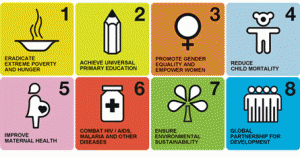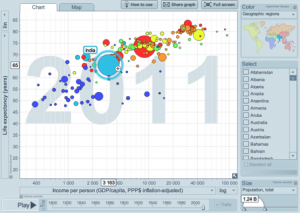In 2000 world leaders agree on eight goals to eradicate extreme poverty. Important progress has been made so far, but there is still a lot to be done and that goals expire in 2015.
Now it is time to raise your voice and vote for the changes you think could make the most difference to our world, and I warn you this is not going to be easy. You will need to put yourself in the place of those that have nothing and choose just six among a series of basic needs such as:
- Political freedoms.
- Protection against crime and violence.
- Affordable and nutritious food.
- Better healthcare.
- Reliable energy at home.
- A good education.
- Access to clean water and sanitation.
- Support for people who can’t work.
- And several more.
Definitively not easy, is it? But, almost as difficult as choosing the right goals, is to find adequate measures that will mark progress toward them, and it is there where Open Data can also play a key role on improving the human condition.
Data is critical to decide which approaches are working and which ones do not. Once you have a robust commitment to data-gathering and sharing in place, you will be able to drive change. You will see which countries are being successful in reaching their goals and why, using that observations to help other countries to do the same and, at the same time, forcing those who are falling behind to focus more resources and attention on the problem than they would have done without open data.

